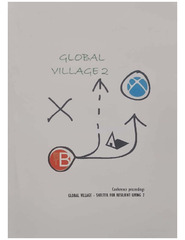| dc.creator | Rakonjac, Ivana | |
| dc.date.accessioned | 2023-12-08T09:56:56Z | |
| dc.date.available | 2023-12-08T09:56:56Z | |
| dc.date.issued | 2023 | |
| dc.identifier.isbn | 978-86-7924-339-3 | |
| dc.identifier.uri | https://raf.arh.bg.ac.rs/handle/123456789/1818 | |
| dc.description.abstract | The COVID-19 pandemic caused the transformation of the traditional learning environment by creating forms of distance education or mixed forms of education to meet the imposed restrictions. This period is characterized by the testing of different approaches to the educational process in the field of architectural design, as well as the need to adapt the educational model to a newly formed lifestyle in an urban environment and its reflections on space. The new forms of the Pandemic impact on the educational process in architectural design will be presented through the experimental research Post-Covid Architecture. This experiment represents a spontaneously formed flow of research through an architectural design that initiated specific considerations of space focused on the isolation experiences, and lifestyle during the Pandemic, as well as the consequences that changed the overall patterns of behavior. Testing of a design methodology based on David Kolb`s Experiential learning model was carried out at the University of Belgrade – Faculty of Architecture at the Master's academic studies Interior Architecture as part of the Master's final thesis under the theme Contemporary Spectacle - Culture and Craftsmanship. This experiment is presented through the selected student projects. The paper aims to show the application of an educational model that transforms personal experiences into operational tools in the design process. Testing the different approaches and methodological models to the teaching process in the field of architectural design is reflected in the expansion of the potential of thinking about space. Sustainability, in the framework of architectural education, is determined by the openness of the methodology and process following the contemporary transformations of the needs and demands of users. These tendencies reflect the necessity of space changes creating new standards of architectural programming. | sr |
| dc.language.iso | en | sr |
| dc.publisher | Belgrade: University of Belgrade - Faculty of Architecture | sr |
| dc.rights | openAccess | sr |
| dc.source | Global village - shelter for resilient living 2 : conference proceedings / Balkan Architectural Biennale [BAB], 21-23th of November | sr |
| dc.subject | architectural concept | sr |
| dc.subject | the future lifestyle | sr |
| dc.subject | well-being | sr |
| dc.subject | new urbanity | sr |
| dc.subject | experiment in architectural education | sr |
| dc.title | Learning Through Experience: Rethinking Space After the Pandemic | sr |
| dc.type | conferenceObject | sr |
| dc.rights.license | ARR | sr |
| dcterms.abstract | Ракоњац, Ивана; | |
| dc.citation.spage | 41 | |
| dc.citation.epage | 46 | |
| dc.identifier.fulltext | http://raf.arh.bg.ac.rs/bitstream/id/6398/BAB2023_proceedings_IR.pdf | |
| dc.identifier.rcub | https://hdl.handle.net/21.15107/rcub_raf_1818 | |
| dc.type.version | publishedVersion | sr |

